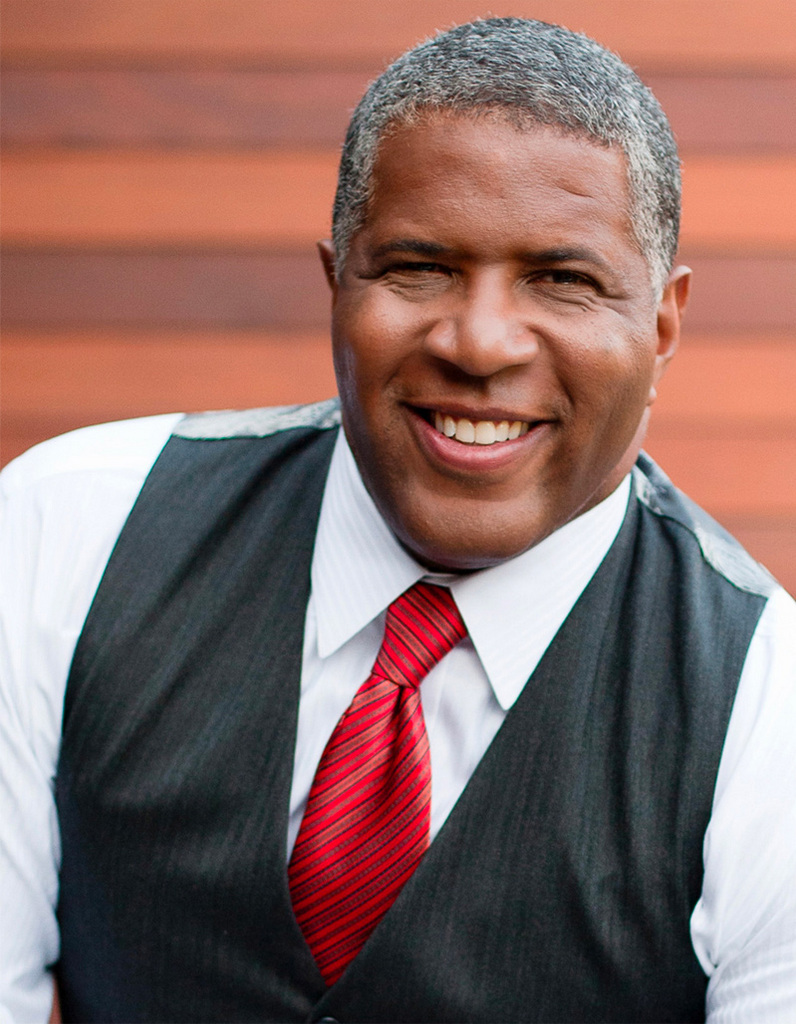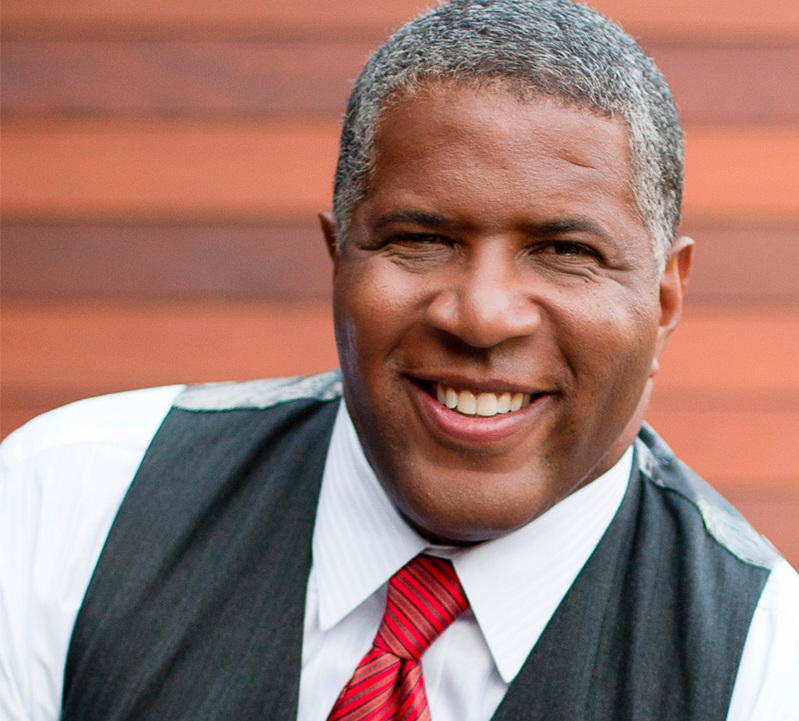[ad_1]
By Robert F. Smith
These past four months, and particularly the past few weeks, have been among the hardest we’ve experienced as a nation. These issues matter to all of us. Naturally, they’re personal to me – and I know they’re a priority for you. We must end systemic racism and lift our nation and all of us through economic justice. I’m grateful for your commitment to do so.
The pandemic laid bare truths about the fragility and inequity of our economy and culture that were too-long ignored. The killings of George Floyd, Breonna Taylor, Ahmaud Arbery, and many others in recent years, and everything that followed, are painful reminders of how much work remains to build a more perfect union.

I’ve engaged in many conversations with leaders across sectors, backgrounds, political perspectives, and walks of life as we all seek to turn outrage and awakening into sustainable results. These are profoundly complex issues, but there are specific solutions that we can enact in the short, medium and long term. I’ve thought hard about how we can assure that we build a framework for change that focuses on ideas that are scalable, comprehensive and that can become systemic and permanent. These solutions should address the gaps in services, funding, and equality – the “deserts” – that plague communities of color. Capital deserts, food deserts, healthcare deserts, broadband deserts, opportunity deserts…each of these deserts can be filled with shoots of opportunity that will grow into gardens of equality.
Some of my conversations were with leaders across the political spectrum before the murder of George Floyd, to emphasize that more PPP relief funds get into the hands of minority small business owners. While not a “DC insider,” I engaged with leaders ranging from Ivanka Trump and Treasury Secretary Steve Mnuchin, to House Speaker Nancy Pelosi and Senate Minority Leader Chuck Schumer, and other members of Congress, and heard a desire to leave politics aside and do the right thing for people who are hurting. This gives me hope that if we identify the right initiatives, we can bring people of power and influence together to get things done.
I’m writing this note to share some of the solutions I’m involved in, and look for ways we can join together to scale-up our work for maximum impact. I’m eager for your ideas and hope we can add to this list:
Create a capital base to permanently close the racial wealth gap. Taking a page from the tradition among many American families of donating two percent of their income to charity, we’re calling on the top US companies across key sectors of the economy to invest two percent of their net income over the next ten years in solutions aimed at closing the racial wealth gap. This won’t just contribute to economic justice; it’ll add $1.5 trillion to our country’s GDP. For more on this: https://www.forbes.com/sites/nathanvardi/2020/06/19/the-2-solution-inside-billionaire-robert-smiths-bold-plan-to-funnel-billions-to-americas-black-owned-businesses/#77d92f0a4bc3
Modernize the capillary banking system. Many of the most vulnerable communities in our country are banking deserts, which means they lack large, national banks and instead rely on what I call the “capillary banking system” — small, community-based lenders such as Community Development Financial Institutions (CDFIs) and Minority Depository Institutions (MDIs). While these lenders do great work, the PPP application process showed that many are not equipped with the tools that big banks have to serve their customers, creating a “have and have-not” dynamic in terms of local access to capital. This became an urgent issue during the PPP process, but it’s a quiet crisis all the time – and can be fixed with relatively modest investments. For more on this: https://www.barrons.com/articles/small-lenders-gain-as-vista-equity-smith-finestra-fintech-ppp-loans-51588799874
Free young people from crushing debt. This past year, while working with Morehouse College to deliver on my grant to pay off the college debt of the 2019 graduating class, I learned more about the systemic problems caused by the current loan structure. For starters, I found that student debt consumes a staggering 65 percent of the wealth of African-American families. Without better options, many families turn to loan products like Parent PLUS or private loans with extremely high interest rates and fixed payment obligations. Too often, this leads to a permanent cycle of crushing debt at a time when young adults should be empowered with career opportunities and life choices. Working with a team that includes former IRS Commissioner Fred Goldberg, UNCF President Dr. Michael Lomax, and others, we created the Student Freedom Initiative (SFI) as a non-profit alternative that will offer flexible repayment options that are tied to income. SFI will launch in Fall 2021 at up to 11 Historically Black Colleges and Universities (HBCUs) and will initially target juniors and seniors majoring in STEM fields that offer the largest number of new jobs in the coming decades. We can expand this to include all STEM students from all ~100 HBCUs, and reach more than 200,000 students over 20 years. For more on this: https://time.com/5857186/robert-f-smith-historically-black-colleges/
Build the talent pipeline. I’ve spent decades hearing well-meaning corporate leaders say they would hire more people of color if the talent pipeline existed. The talent exists, and we can and must expand the pipeline! When I was in high school, I interned at Bell Labs in Colorado. It was a transformative experience that exposed me to cutting-edge technology, taught me the value of mentors, and gave me experience in the working world. With that in mind, I helped launch the InternX program within the Fund II Foundation, to match highly-qualified minority students looking for internships with a growing number of companies with internship positions to fill. Internships and mentoring are two areas that all companies can invest in, and if we scale it up and do it right, we can expose an entire generation of young people to opportunities they may not even know exist for them. For more on this: https://internx.org/
Internships are not enough! In April, Stanford University analyzed 100 of our nation’s leading corporations, the Fortune 100, and reported that 26 have no racially diverse executives in the C-suite. In total, racially-diverse executives hold only 16 percent of total C-suite positions, and only 4 CFOs are not white. This is important because Stanford also found that almost no companies promote a CEO from more than one level below the CEO. If we want to tackle the uncomfortable reality that only 4 of the Fortune 500 CEOs are black, then we need to dramatically increase the number of senior black executives across corporate America. Corporations must both accelerate African American diversity in all levels of their workforces, and provide equitable opportunities for training, mentoring, and advancement.
Change the face of corporate boards. The lack of diversity on corporate boards has been a topic of conversation for many years, but we’ve seen minimal progress. This needs to change. Vista Equity Partners recently joined a new program called the Modern Leadership Initiative, launched by Diligent. Vista and several other firms and companies are committing to open board positions for minority candidates, and post them on the Diligent platform. Diligent also will source highly-qualified minority board candidates from among their 700,000 active users (who themselves are corporate board members), so that the platform will address both supply and demand. This is a great example of leveraging technology to scale-up a solution to a problem we should be able to solve. For more on this: https://diligent.com/news/modern-governance-12-0-diligent-launches-modern-leadership-to-help-organizations-build-more-diverse-and-inclusive-boards-and-leadership-teams
Invest more African American pensions in African American communities and businesses. One of the great ironies of institutional racism is that millions of African American workers’ retirement savings are invested in the very companies that have abandoned their communities. One easy fix would be for federal and state pensions to allocate a small percentage of their investments to African American asset managers. African Americans make up 18 percent of the Federal work force, contributing 14 percent to federal pensions. In most large states, African Americans account for 17 percent of contributions to pension funds. These percentages should drive the percentage of pensions directed to African American asset managers. This simple change would have enormous impact.
I’m often asked if this moment will be different. My answer is that it will be if we make it so. The priorities above are only part of the answer, and I want to make sure we’re covering all the right bases in a smart and strategic way to end systemic racism once and for all.
Robert F. Smith is founder, chairman and CEO of Vista Equity Partners.
[ad_2]
Source link


